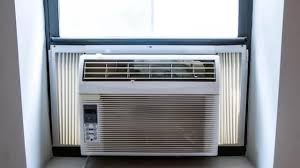Older air conditioners consume more electricity due to wear and lack of inverter tech. Replacing units over 10 years old can cut bills and improve cooling
Still clinging to that old air conditioner and noticing a spike in your electricity bill? Your concerns may be well-founded. Generally, the typical lifespan of an air conditioner ranges between 10 and 15 years. However, if your unit is over a decade old, it may be worth considering a replacement.
As air conditioners age, critical components like the compressor, motor, and coil begin to wear out, making the system less efficient. This results in the unit taking longer to cool a room and working harder to maintain temperature, thereby increasing electricity usage..
Moreover, most older air conditioners lack inverter technology. Inverter-equipped systems adjust compressor speed based on room temperature, significantly reducing power consumption.
When Should You Service Your Air Conditioner?
Regular servicing is essential to maintain optimal performance. Without it, problems such as dust accumulation, rust, and refrigerant leaks may arise. These issues not only compromise cooling efficiency but also force the system to run longer and harder, consuming more energy.
Older units are also more prone to gas leaks, which place additional strain on the components and further increase electricity use.
Are New Air Conditioners More Energy-Efficient?
Older units often carry lower star ratings, meaning they are less energy-efficient and more costly to run. In contrast, newer models are equipped with advanced technology that enhances cooling while significantly reducing energy consumption. Inverter air conditioners, for instance, can lower electricity usage by 30 – 40%.
In addition, the maintenance and repair costs of older units tend to rise over time; further justifying the investment in a newer model.
Should You Replace Your Old Air Conditioner?
If your air conditioner is more than 10 years old, it may be time to consider an upgrade. Not only could a new model offer better cooling, but it may also lead to noticeable savings on your electricity bill.




















